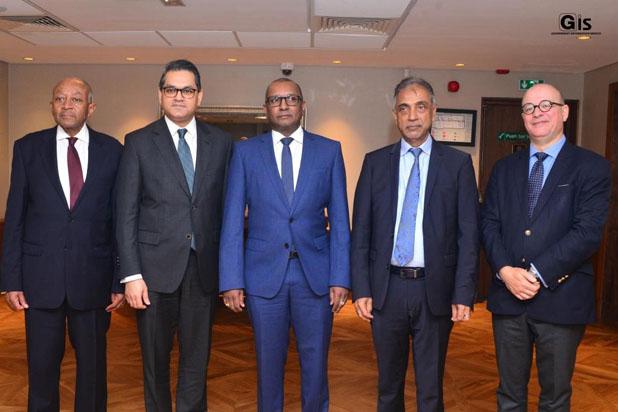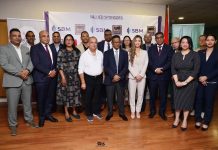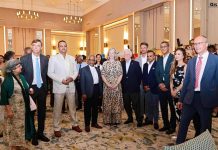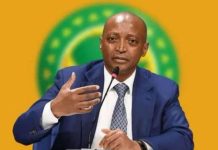Africa-Press – Mauritius. A two-day regional workshop on Correspondent Banking aiming to allow participants to come out better equipped and to foster stronger correspondent banking relationships, opened, this morning, at the Bank of Mauritius (BoM), in Port Louis.
The workshop is organised by the BoM and the European Union Global Facility on anti-money laundering and countering the financing of terrorism (EU-AML/CFT) in collaboration with the Eastern and Southern Africa Anti-Money Laundering Group (ESAAMLG).
The Minister of Finance, Economic Planning and Development, Dr Renganaden Padayachy, the Governor of the BoM, Mr Harvesh Seegolam, the Director General of the Independent Commission Against Corruption (ICAC), Mr Navin Beekarry, the Executive Secretary of the ESAAMLG, Dr Eliawony Kisanga, the Team Leader of the EU Global Facility, Mr David Hotte, and other personalities were present at the ceremony.
Members of the ESAAMLG, currently in Mauritius to conduct a de-risking survey for the region, were also in attendance. In his address, Dr Padayachy highlighted that from an economic perspective and in the context of increased globalisation, for countries like Mauritius, cross-border payments are essential for socio-economic development.
Yet, since the global financial crisis of 2008, we have seen that cross-border correspondent banking relationships have declined overall, and more significantly in some economies, he stated. Furthermore, he underlined that the resulting lack of access to correspondent banking services poses a threat to trade and investment.
Mauritius, as an international financial centre with a widely established reputation, cannot allow the risks of money laundering and terrorist financing to crystallise and investor confidence in our financial system to be undermined, he indicated.
In this regard, Minister Padayachy emphasised that the country has been and continues to be guided by the Financial Action Task Force’s (FATF) 40 Recommendations, which have emerged as the model for national and international controls to combat money laundering and terrorist financing.
This workshop, the Minister stressed, will pave the way for continued progress in maintaining correspondent banking relationships and improving cross-border payments. In this respect, he appealed to banks to continue to work on improving their money laundering and terrorist financing risk management frameworks.
For his part, the Governor of the BoM indicated that correspondent banking plays a crucial role in the facilitation of cross-border payments and remains a prerequisite for trade, investment and economic activities.
On this score, Mr Seegolam pointed out that the BoM continues to work very closely with all its regulatees to ensure a continuous monitoring of developments on the front of correspondent banking and cross-border payments. Furthermore, he highlighted that de-risking and correspondent banking are intrinsically and intricately linked.
“As many of the leading banks are elaborating new de-risking strategies in the face of regulatory challenges which may bring them to revisit their operations across our continent, it is important that Central Banks as well as banks and financial institutions work together to address this challenge,” Mr Seegolam said.
As for Mr Beekarry, he emphasised that while correspondent banking is critical for economic and financial development, it entails certain risks. These include: facilitation of money laundering and terrorist financing; facilitation of network of offshore companies to allow corruption, tax evasion and hiding assets abroad; and inability to discover identities of underlying parties to a transaction.
The Executive Secretary of the ESAAMLG, for his part, highlighted that this workshop is of great relevance and importance as the de-risking phenomenon is a serious concern for the ESAAMLG region and the global community.
This is because it has an effect of driving genuine financial transactions into non-regulated channels, reducing transparency of financial flows and creating financial exclusion, thereby increasing exposure to money laundering and terrorist financing risks, he stated.
Dr Kisanga furthermore thanked all expert facilitators and coordinators who will be making presentations and who have put together the programme of discussion for the next two days so as to better address the de-risking challenges through effective AML/CFT measures.
For More News And Analysis About Mauritius Follow Africa-Press







